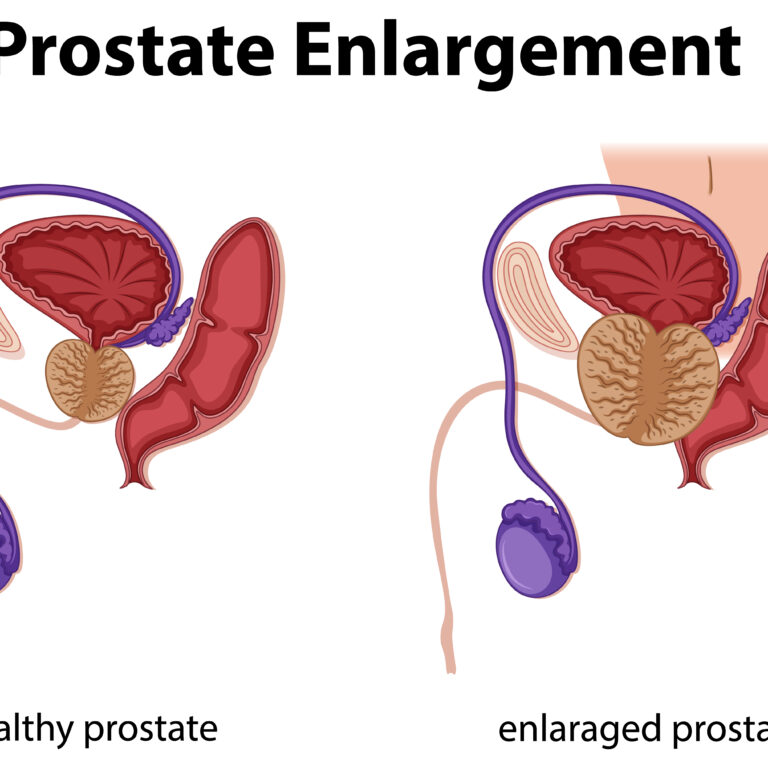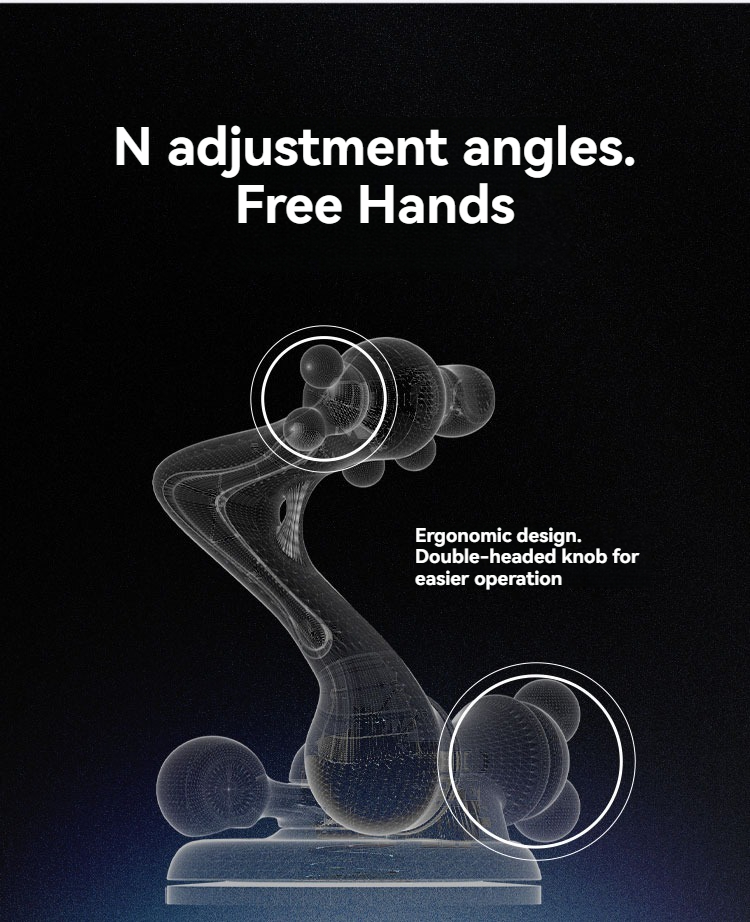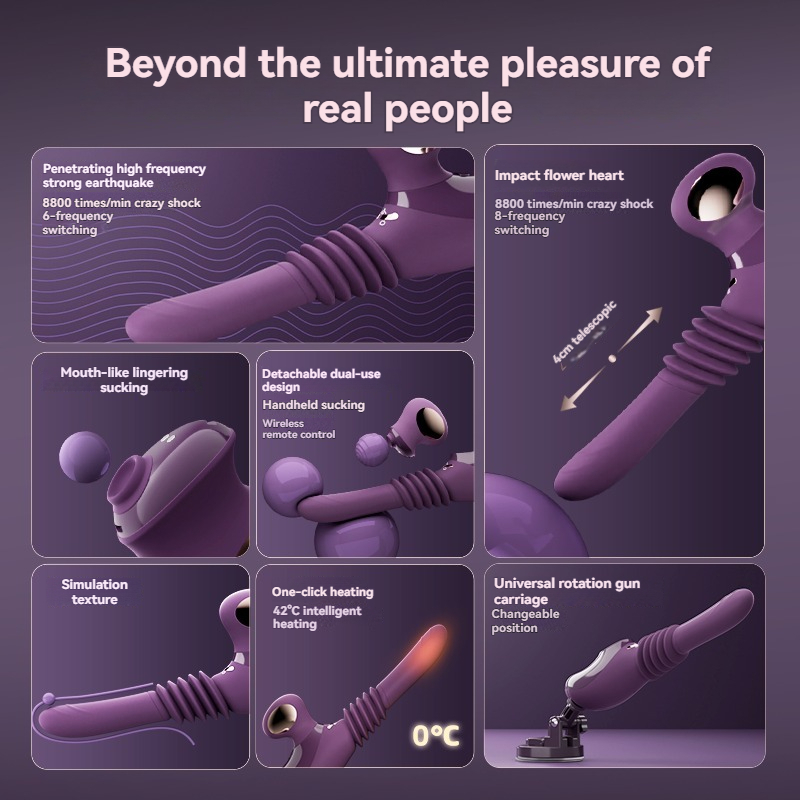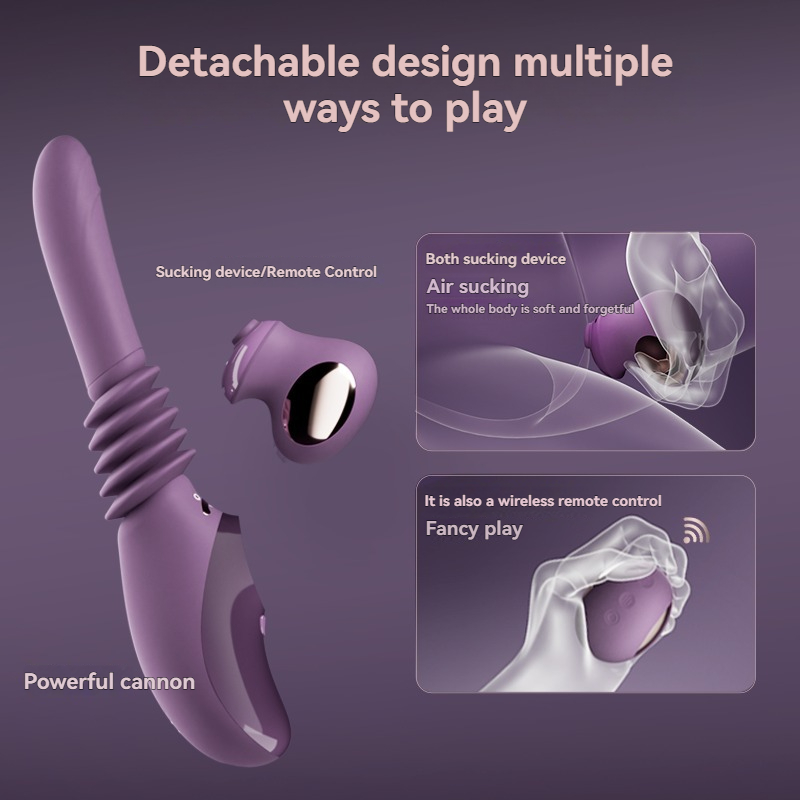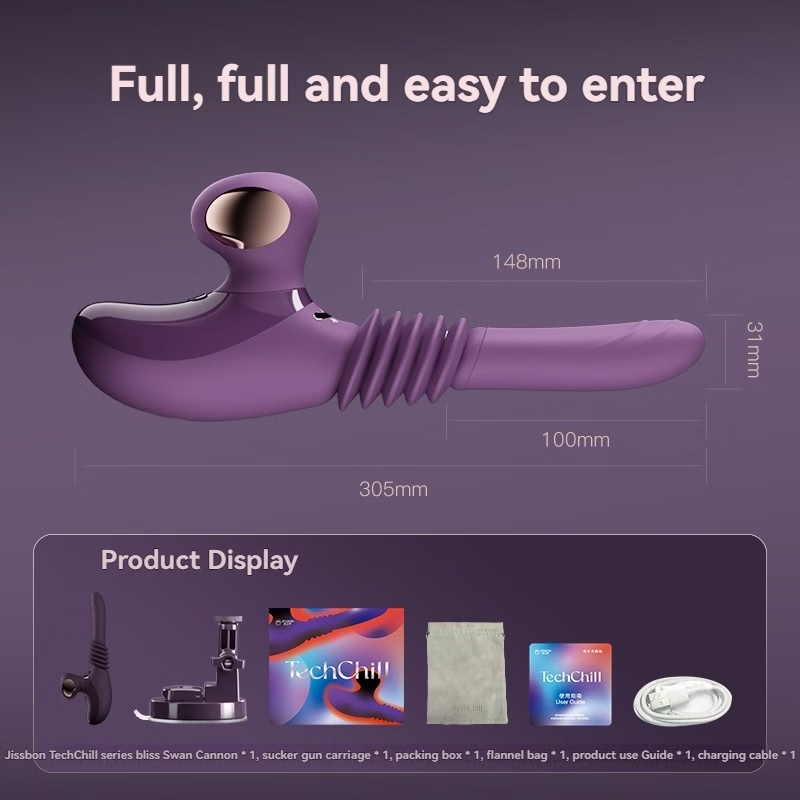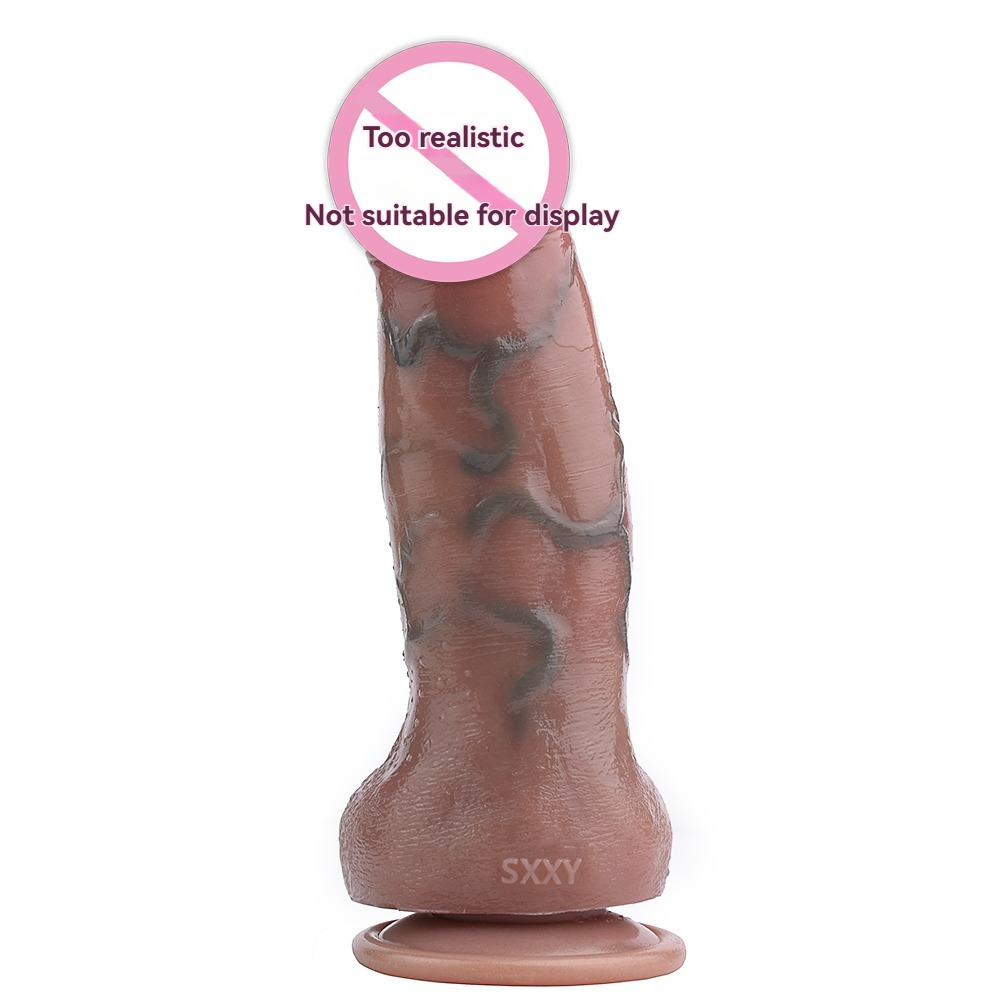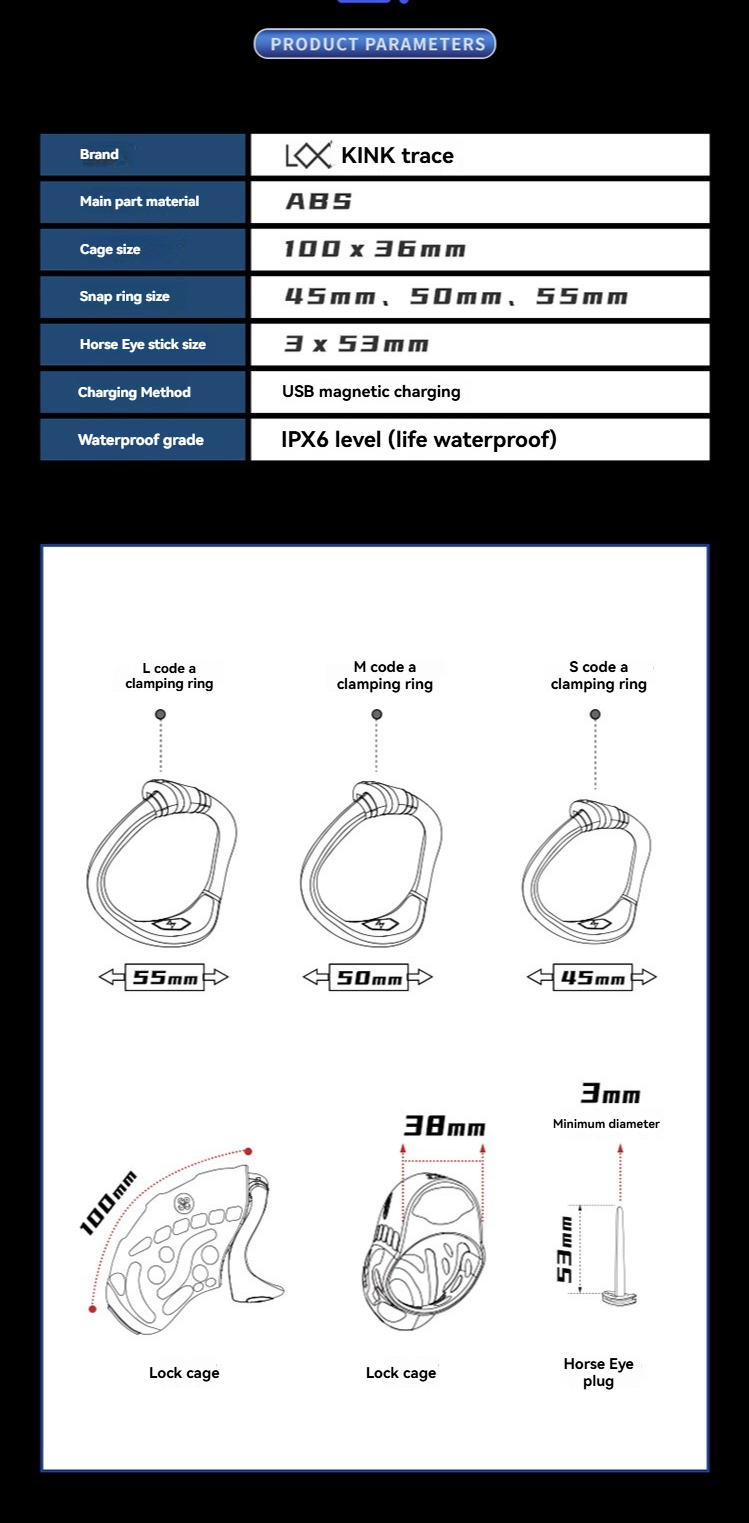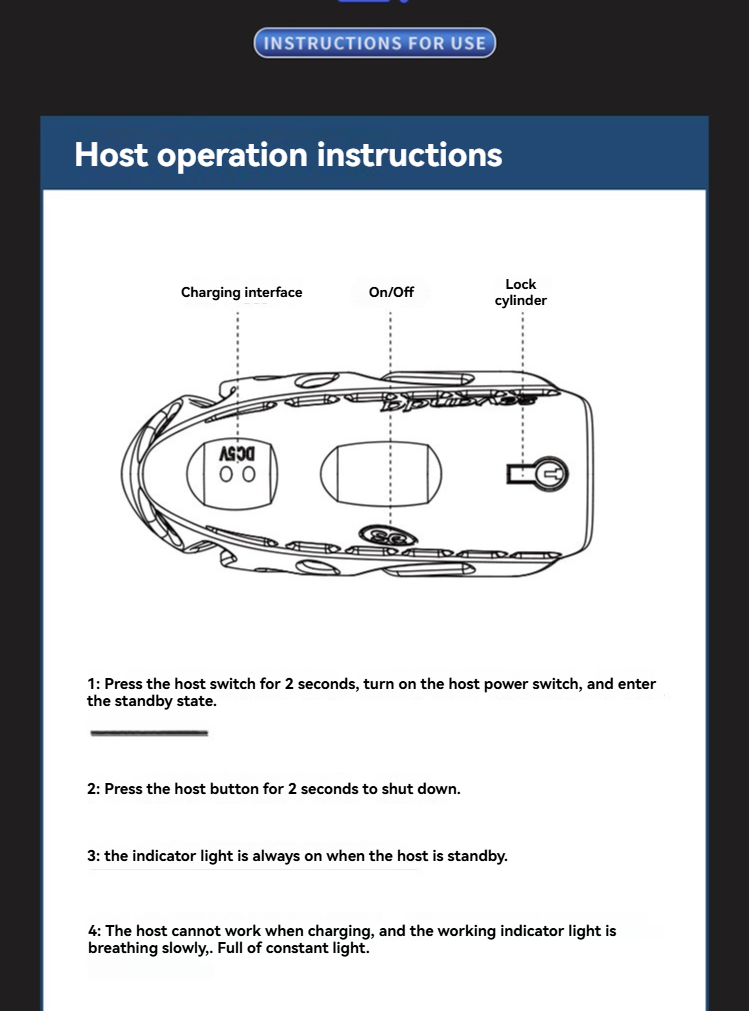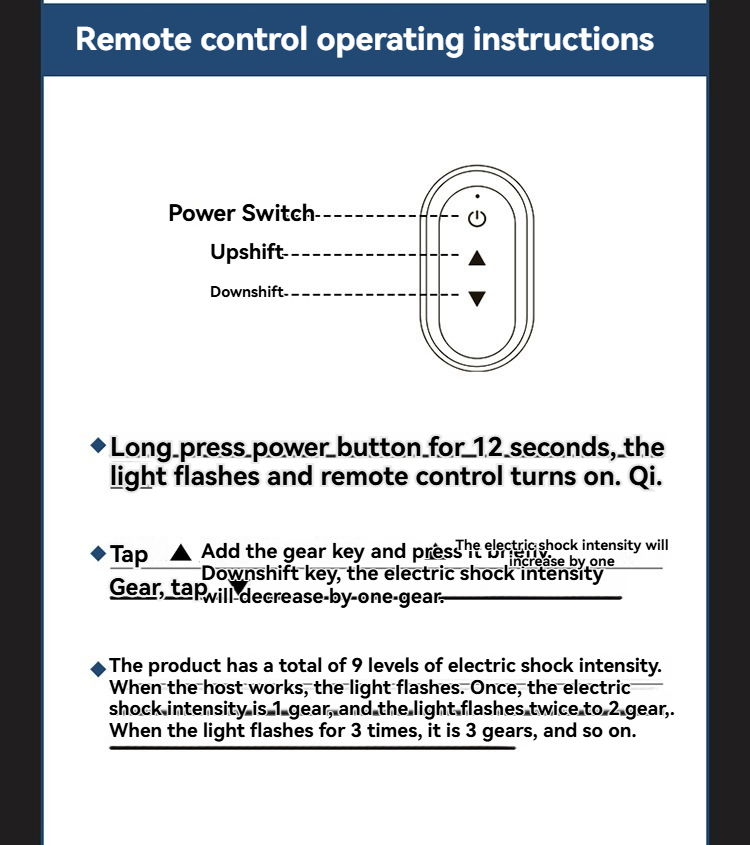Cultivate Connection: Mindfulness and Intimacy Practices for Gay Men

Key Takeaways-Cultivate Connection: Mindfulness and Intimacy Practices for Gay Men
- Mindfulness practices can significantly enhance intimacy and emotional connection in gay relationships.
- Effective communication, trust, and mutual respect are essential for cultivating deep connections.
- Intimacy-enhancing products from sextoyforyou.store can support and enrich physical connections.
- Challenges such as stress, societal stigma, and emotional barriers require proactive strategies to overcome.
- Incorporating mindfulness into daily routines fosters a more present and fulfilling relationship.
Table of Contents
- Introduction
- Understanding Mindfulness in Relationships
- Benefits of Mindfulness for Intimacy
- Challenges to Intimacy in Gay Relationships
- Mindfulness Practices to Enhance Intimacy
- Intimacy-Enhancing Products for Gay Men
- Case Studies: Mindfulness in Action
- Comparison Table: Mindfulness Techniques
- Conclusion
- Frequently Asked Questions (FAQs)
- References
Introduction
In the journey of love and companionship, intimacy serves as a vital component that strengthens the bond between partners. For gay men, cultivating deep and meaningful connections involves navigating unique challenges and embracing practices that foster emotional and physical closeness. Mindfulness, a practice rooted in present-moment awareness, has emerged as a powerful tool to enhance intimacy in relationships.
Mindfulness involves paying deliberate attention to one’s thoughts, feelings, and sensations without judgment. When applied to relationships, mindfulness can transform the way partners interact, communicate, and connect, leading to more fulfilling and resilient partnerships.
This comprehensive guide delves into the intersection of mindfulness and intimacy in gay relationships. By exploring the benefits, addressing common challenges, and providing practical mindfulness practices, we aim to equip gay men with the tools to cultivate deeper connections. Additionally, we highlight intimacy-enhancing products from sextoyforyou.store that can support and enrich physical intimacy, complementing mindfulness practices for a holistic approach to relationship satisfaction.
Whether you are looking to strengthen an existing relationship or build a new one with mindfulness at its core, this guide offers valuable insights and actionable strategies to foster a loving and connected partnership.
Understanding Mindfulness in Relationships
Definition and Principles of Mindfulness
Mindfulness is a mental practice that involves maintaining a nonjudgmental state of heightened or complete awareness of one’s thoughts, emotions, and experiences on a moment-to-moment basis (Kabat-Zinn, 2003). Rooted in Buddhist meditation, mindfulness has been widely adopted in Western psychology as a therapeutic technique to reduce stress, enhance emotional regulation, and improve overall well-being.
The core principles of mindfulness include:
- Present-Moment Awareness: Focusing attention on the current moment rather than dwelling on the past or worrying about the future.
- Non-Judgment: Observing thoughts and feelings without labeling them as good or bad, allowing for a more objective perspective.
- Acceptance: Embracing experiences as they are, without attempting to change or resist them.
- Compassion: Cultivating a sense of kindness and understanding towards oneself and others.
In the context of relationships, mindfulness encourages partners to be fully present with each other, fostering deeper emotional connections and enhancing communication.
Mindfulness in the Context of Gay Relationships
Gay relationships often navigate unique social and cultural dynamics, including societal stigma, family expectations, and internalized biases. These factors can impact the emotional and physical intimacy between partners, making mindfulness an invaluable practice for fostering connection and resilience.
Mindfulness in gay relationships involves being attuned to each other’s needs, emotions, and experiences, creating a safe and supportive environment for mutual growth. It encourages partners to communicate openly, empathize deeply, and engage in shared moments of presence, enhancing both emotional and physical intimacy.
By integrating mindfulness into their daily routines, gay men can cultivate a more conscious and intentional approach to their relationships, leading to greater satisfaction and enduring connections.

Benefits of Mindfulness for Intimacy
Enhanced Emotional Connection
One of the most significant benefits of mindfulness in relationships is the enhancement of emotional connection. By fostering present-moment awareness, mindfulness allows partners to fully engage with each other’s emotions and experiences, deepening their emotional bond.
According to Gottman and Silver (1999), emotional attunement is crucial for relationship satisfaction. Mindfulness practices, such as active listening and compassionate communication, help partners stay connected and responsive to each other’s emotional needs. This heightened emotional awareness can lead to increased empathy, understanding, and intimacy.
Moreover, mindfulness helps individuals become more aware of their own emotions and triggers, enabling them to respond to their partners with greater sensitivity and patience. This self-awareness reduces reactive behaviors and fosters a more harmonious and supportive relationship dynamic.
Improved Communication
Effective communication is the foundation of any healthy relationship. Mindfulness enhances communication by encouraging partners to listen attentively, express themselves clearly, and engage in meaningful dialogues without judgment or defensiveness.
Research by Rempel, Holmes, and Zanna (1985) emphasizes the importance of trust and open communication in maintaining close relationships. Mindfulness practices, such as mindful speaking and listening exercises, help couples communicate more effectively, reducing misunderstandings and conflicts.
By being fully present during conversations, partners can better understand each other’s perspectives, validate each other’s feelings, and collaborate on resolving issues. This leads to more constructive and fulfilling interactions, strengthening the overall relationship.
Reduced Stress and Anxiety
Stress and anxiety are common challenges that can negatively impact intimacy and relationship satisfaction. Mindfulness has been shown to effectively reduce stress and promote emotional regulation, creating a calmer and more stable relationship environment.
According to Kabat-Zinn (2003), mindfulness practices can decrease cortisol levels, the body’s primary stress hormone, and enhance the body’s relaxation response. This physiological impact helps individuals manage stress more effectively, reducing the likelihood of stress-related conflicts and tension within the relationship.
Additionally, mindfulness encourages individuals to approach stressors with a non-reactive and accepting attitude, fostering resilience and adaptability in the face of challenges. This emotional stability supports a more supportive and nurturing relationship dynamic, enhancing overall intimacy and connection.
Increased Sexual Satisfaction
Mindfulness can also significantly enhance sexual satisfaction by promoting a deeper connection and greater awareness during intimate moments. Mindful sex encourages partners to focus on the present experience, heightening physical sensations and emotional intimacy.
Research by Reisner et al. (2016) indicates that mindfulness practices can improve sexual function and satisfaction by reducing performance anxiety, enhancing body awareness, and fostering a more relaxed and pleasurable sexual experience. By being fully present during sexual activities, partners can experience more intense and fulfilling orgasms, strengthening their physical and emotional bond.
Moreover, mindfulness can help individuals become more attuned to their own and their partner’s sexual needs and desires, facilitating more satisfying and consensual sexual encounters. This heightened awareness promotes mutual pleasure and respect, enhancing the overall quality of the sexual relationship.
Challenges to Intimacy in Gay Relationships
Societal Stigma and Discrimination
Societal stigma and discrimination are pervasive challenges that can significantly impact the intimacy and emotional well-being of gay men in relationships. Negative societal attitudes, prejudice, and discrimination can lead to internalized homophobia, stress, and decreased self-esteem, all of which can strain relationships.
According to Meyer (2003), minority stress theory explains how societal stigma and discrimination contribute to increased psychological stress among LGBTQ+ individuals. This stress can manifest as anxiety, depression, and relationship conflicts, undermining the foundation of emotional and physical intimacy.
Furthermore, societal stigma can limit access to supportive resources and safe spaces, exacerbating feelings of isolation and loneliness. This lack of external support can hinder the development of healthy and fulfilling relationships, making it challenging for couples to maintain intimacy and connection.
Addressing societal stigma requires both personal resilience and broader societal change. Building a supportive network, engaging with LGBTQ+ communities, and advocating for equality and acceptance are essential steps in combating discrimination and fostering a more inclusive environment for gay relationships.
Internalized Homophobia and Self-Acceptance
Internalized homophobia refers to the internalization of societal anti-LGBTQ+ attitudes, leading individuals to harbor negative feelings and beliefs about their own sexual orientation. This internal conflict can significantly impact the emotional and physical intimacy of gay men in relationships.
Research by Antonucci et al. (2002) highlights that internalized homophobia can lead to decreased self-esteem, increased anxiety, and avoidance of intimacy, all of which can strain relationships. Individuals may struggle with self-acceptance, leading to emotional distance and difficulties in forming deep connections with their partners.
Overcoming internalized homophobia involves a journey of self-discovery, self-compassion, and acceptance. Mindfulness practices can aid in this process by fostering self-awareness and self-acceptance, allowing individuals to confront and release negative self-beliefs.
Cultivating self-compassion, seeking therapy, and engaging in supportive communities can also help gay men overcome internalized homophobia, promoting healthier and more intimate relationships.
Communication Barriers
Effective communication is essential for maintaining intimacy in any relationship. However, communication barriers such as fear of vulnerability, misunderstanding, and lack of active listening can hinder emotional and physical connection in gay relationships.
According to Gottman and Silver (1999), poor communication is one of the leading causes of relationship dissatisfaction and conflict. In gay relationships, these barriers can be exacerbated by societal pressures, stigma, and internalized biases, making open and honest dialogue more challenging.
Mindfulness can play a pivotal role in overcoming communication barriers by encouraging partners to be fully present and attentive during conversations. Practices such as active listening, compassionate communication, and non-judgmental dialogue can enhance understanding and empathy, fostering deeper emotional connections.
Additionally, setting aside dedicated time for meaningful conversations and utilizing communication techniques can help couples navigate and resolve conflicts more effectively, strengthening their intimacy and relationship satisfaction.
Balancing Individual and Relationship Needs
Balancing individual and relationship needs is a common challenge in gay relationships, particularly in the context of mindfulness and intimacy. Individuals may struggle to prioritize their personal well-being while maintaining a strong emotional and physical connection with their partners.
According to Rempel, Holmes, and Zanna (1985), maintaining a healthy balance between individual autonomy and relationship commitment is crucial for long-term relationship satisfaction. However, societal expectations and internalized biases can make this balance difficult to achieve.
Mindfulness practices can aid in achieving this balance by fostering self-awareness and self-compassion, allowing individuals to recognize and honor their own needs while being attuned to their partner’s needs. Practices such as mindful self-care, setting healthy boundaries, and cultivating mutual respect can help couples navigate the complexities of balancing individual and relationship needs.
By prioritizing both personal well-being and relationship harmony, gay men can cultivate a more fulfilling and balanced partnership, enhancing their overall intimacy and connection.

Mindfulness Practices to Enhance Intimacy
Mindful Breathing Exercises
Mindful breathing is a foundational mindfulness practice that involves focusing attention on the breath, observing each inhale and exhale without judgment. This practice helps anchor individuals in the present moment, reducing stress and enhancing emotional regulation.
In the context of relationships, mindful breathing can be practiced together, fostering a sense of shared presence and connection. Partners can engage in synchronized breathing exercises, such as deep diaphragmatic breathing or box breathing, to create a harmonious and calming environment that enhances intimacy.
According to Kabat-Zinn (2003), mindful breathing can reduce physiological stress responses, promoting relaxation and emotional stability. By incorporating mindful breathing into their daily routines, couples can create a foundation of calm and connection, strengthening their emotional bond and fostering a deeper sense of intimacy.
Mindful Listening and Speaking
Mindful listening and speaking involve being fully present and attentive during conversations, focusing on understanding the partner’s perspective without interrupting or judging. This practice enhances communication, empathy, and emotional connection in relationships.
According to Hatfield and Rapson (2005), effective communication is essential for maintaining emotional intimacy. Mindful listening requires active engagement, where partners listen to each other’s words, tone, and non-verbal cues, fostering a deeper understanding and validation of each other’s feelings and experiences.
Mindful speaking, on the other hand, involves expressing thoughts and feelings clearly and compassionately, without blame or criticism. This approach encourages open and honest dialogue, reducing misunderstandings and fostering a more supportive and harmonious relationship dynamic.
Practicing mindful listening and speaking can help gay men navigate sensitive topics, resolve conflicts, and enhance their emotional connection, leading to a more fulfilling and intimate partnership.
Body Scan Meditation
Body scan meditation is a mindfulness practice that involves systematically focusing attention on different parts of the body, observing sensations, and releasing tension. This practice promotes physical relaxation and body awareness, enhancing the connection between mind and body.
In relationships, body scan meditation can be practiced together, fostering a shared sense of relaxation and presence. Partners can engage in guided body scan sessions, taking turns leading the meditation and enhancing their mutual sense of comfort and intimacy.
According to Antonucci et al. (2002), body scan meditation can reduce physical stress and enhance overall well-being, promoting a healthier and more balanced relationship dynamic. By cultivating body awareness, individuals can become more attuned to their own needs and their partner’s needs, fostering a deeper sense of empathy and connection.
Gratitude Practices
Gratitude practices involve acknowledging and appreciating the positive aspects of the relationship and the partner’s contributions. This practice fosters a positive outlook, enhances emotional connection, and promotes relationship satisfaction.
According to Lehmiller (2013), expressing gratitude can strengthen emotional bonds, increase feelings of closeness, and reduce negative emotions such as resentment and jealousy. Couples can incorporate gratitude practices into their daily routines by sharing what they appreciate about each other, maintaining gratitude journals, or engaging in regular gratitude reflections together.
By focusing on the positive aspects of the relationship, couples can cultivate a more supportive and loving partnership, enhancing their emotional and physical intimacy.
Mindful Touch and Sensual Connection
Mindful touch involves being fully present and attuned during physical interactions, such as hugging, holding hands, or engaging in sexual activities. This practice enhances physical intimacy by fostering a deeper sense of connection and mutual enjoyment.
According to the American Psychological Association (2020), physical touch releases oxytocin, the “love hormone,” which promotes feelings of bonding and attachment. Mindful touch encourages partners to savor each moment, focusing on the sensations and emotions associated with physical closeness.
Incorporating intimacy-enhancing products from sextoyforyou.store, such as massage oils, vibrators, and cock rings, can further enrich physical connections. These products provide new avenues for exploration and pleasure, enhancing the overall intimate experience.
By practicing mindful touch and integrating intimacy-enhancing tools, gay men can cultivate a more fulfilling and connected physical relationship, deepening their emotional bond and enhancing overall intimacy.

Intimacy-Enhancing Products for Gay Men
Vibrators
Vibrators are versatile intimacy-enhancing products that can significantly improve the sexual experience for gay men. They provide consistent and varied stimulation, enhancing pleasure and satisfaction for both partners.
According to Moors et al. (2015), incorporating vibrators into intimate activities can add excitement and variety, preventing sexual monotony and fostering a more dynamic sexual connection. Vibrators come in various shapes, sizes, and functionalities, catering to different preferences and needs.
For gay couples, vibrators can be used for prostate stimulation, enhancing orgasms and providing deeper pleasure. They can also be incorporated into mutual play, fostering a more interactive and engaging sexual experience. By exploring the use of vibrators, couples can discover new dimensions of intimacy and pleasure, strengthening their emotional and physical bonds.
Platforms like sextoyforyou.store offer a wide range of vibrators designed specifically for gay men, ensuring that both partners can find products that align with their unique preferences and enhance their intimate connection.
Prostate Massagers
Prostate massagers are specialized sex toys designed to stimulate the prostate gland, providing intense pleasure and potential health benefits. These devices are ergonomically designed to target the prostate effectively, offering both physical and emotional satisfaction.
Research by Meyer (2003) indicates that regular prostate stimulation can promote prostate health, improve sexual function, and enhance the intensity of orgasms. Prostate massagers offer a practical and enjoyable way to achieve these benefits, making them a valuable tool for gay men seeking to enrich their intimate experiences.
Using a prostate massager can help overcome challenges such as erectile dysfunction by providing additional stimulation and support. It also encourages partners to engage in mutual exploration, fostering a deeper emotional and physical connection.
By incorporating prostate massagers into their intimate routine, gay couples can enhance their sexual satisfaction and strengthen their relationship. These products are available in various designs and functionalities on sextoyforyou.store, ensuring that both partners can find a massager that suits their needs and preferences.
Cock Rings
Cock rings are sex toys worn around the base of the penis to restrict blood flow, helping to maintain erections and prolong intimate sessions. They can also enhance the appearance of the penis, increasing perceived size and firmness.
According to Hatfield and Rapson (2005), cock rings can aid in sustaining erections by trapping blood within the penis, making them an effective tool for individuals experiencing erectile difficulties. They also heighten sexual pleasure by providing additional stimulation and firmness during intercourse.
For gay couples, cock rings can add an extra layer of excitement and satisfaction to intimate activities. They can be worn during intercourse, mutual play, or solo activities, enhancing both partners’ experiences. By introducing cock rings, couples can explore new levels of intimacy and pleasure, reinforcing their emotional and physical bonds.
High-quality cock rings from sextoyforyou.store are designed with comfort and safety in mind, ensuring a pleasurable and secure fit that enhances the overall intimate experience.
Anal Plugs
Anal plugs are sex toys designed for anal stimulation, providing pleasurable sensations and preparing the body for larger anal activities. They come in various sizes, shapes, and materials to accommodate different comfort levels and preferences.
Research by Reisner et al. (2016) highlights the importance of anal stimulation in enhancing sexual pleasure and overall relationship satisfaction for gay men. Anal plugs offer a controlled and comfortable way to explore anal intimacy, reducing the risk of discomfort and increasing mutual enjoyment.
Using anal plugs can help couples build trust and communication around anal play, fostering a deeper emotional and physical connection. They provide a safe and pleasurable way to explore new forms of intimacy, enhancing the overall sexual experience.
Platforms like sextoyforyou.store offer a diverse range of anal plugs, ensuring that both partners can find products that align with their comfort levels and enhance their intimate connection.
Remote-Controlled Toys
Remote-controlled toys offer a unique way to maintain intimacy, especially in long-distance relationships or during periods when partners are physically apart due to work or other commitments. These devices can be controlled via smartphone apps, allowing one partner to initiate stimulation and pleasure from a distance.
According to Meyer (2003), remote-controlled toys can help bridge the physical gap in long-distance relationships, fostering a sense of presence and connection despite geographical separation. They add an element of surprise and playfulness, enhancing emotional and physical intimacy by creating shared moments of pleasure and interaction.
For gay couples, remote-controlled toys can be a fun and engaging way to maintain their intimate connection, ensuring that their relationship remains vibrant and fulfilling despite physical distance. They can be used during video calls, text exchanges, or any other form of remote communication, providing a tangible way to express love and affection.
High-quality remote-controlled toys from sextoyforyou.store offer reliable connectivity, varied functionalities, and user-friendly controls, making them an ideal choice for couples seeking to enhance their long-distance intimacy.
Massage Oils
Massage oils are essential tools for enhancing physical intimacy and fostering emotional connection through touch. They provide a lubricating and soothing medium for massages, promoting relaxation and sensuality.
According to the American Psychological Association (2020), physical touch, such as massages, releases oxytocin, the “love hormone,” which fosters feelings of closeness and bonding between partners. Massage oils enhance this experience by reducing friction, making massages more comfortable and enjoyable.
For gay couples, incorporating massage oils into their intimate routine can deepen emotional bonds, relieve stress, and enhance physical pleasure. Massages offer a non-sexual way to connect, providing a space for partners to care for each other’s well-being and enjoy each other’s company in a relaxed and nurturing environment.
Products like massage oils from sextoyforyou.store are crafted with high-quality, body-safe ingredients to ensure a luxurious and safe experience. These oils not only facilitate smoother massages but also add a sensual element to the relationship, enhancing both emotional and physical intimacy.
Case Studies: Mindfulness in Action
Case Study 1: Enhancing Emotional Connection Through Mindful Practices
Mark and Liam, a gay couple, found that their relationship had become routine, leading to a decline in emotional intimacy and satisfaction. They decided to incorporate mindfulness practices into their daily routines to reconnect and enhance their emotional bond.
Mark and Liam began with mindful breathing exercises, dedicating 10 minutes each morning to practice synchronized breathing. This simple practice helped them start the day with a sense of calm and connection, setting a positive tone for their interactions throughout the day.
Additionally, they introduced gratitude journaling, where each partner would write down three things they appreciated about the other every evening. This practice fostered a positive outlook and reinforced their emotional bond by highlighting the strengths and contributions of each partner.
To deepen their connection, Mark and Liam engaged in body scan meditation sessions together on weekends, promoting physical relaxation and enhancing their awareness of each other’s presence and needs. These shared mindfulness practices revitalized their emotional intimacy, leading to a more fulfilling and resilient relationship.
Furthermore, they incorporated intimacy-enhancing products from sextoyforyou.store, such as massage oils and vibrators, to enrich their physical connection. The combination of mindfulness and physical intimacy tools provided a holistic approach to cultivating a deeper and more meaningful relationship.
This case study demonstrates how integrating mindfulness practices and intimacy-enhancing products can significantly enhance emotional and physical intimacy in gay relationships, fostering a stronger and more connected partnership.
Case Study 2: Overcoming Communication Barriers with Mindfulness
Jordan and Eric, a gay couple, struggled with communication barriers that led to frequent misunderstandings and conflicts. They decided to adopt mindfulness techniques to improve their communication and enhance their intimacy.
Jordan and Eric began practicing mindful listening during their conversations. This involved fully focusing on each other without interrupting, acknowledging each other’s feelings, and responding with empathy and understanding. This practice helped them develop a deeper sense of trust and respect, reducing the frequency and intensity of conflicts.
They also incorporated mindful speaking, ensuring that their words were intentional and compassionate. By expressing their thoughts and feelings clearly and respectfully, they were able to address issues constructively and prevent misunderstandings from escalating into conflicts.
Additionally, Jordan and Eric engaged in weekly mindfulness meditation sessions together, enhancing their emotional connection and fostering a sense of unity and harmony. These practices improved their ability to navigate challenges with patience and understanding, strengthening their overall intimacy.
To further support their relationship, they utilized intimacy-enhancing products from sextoyforyou.store, such as vibrators and cock rings, to enhance their physical connection and introduce new dimensions of pleasure and satisfaction.
Through mindfulness practices and the integration of intimacy-enhancing tools, Jordan and Eric successfully overcame their communication barriers, leading to a more harmonious and intimate relationship. This case study highlights the transformative impact of mindfulness on communication and intimacy in gay relationships.
Case Study 3: Reducing Stress and Enhancing Connection with Mindfulness
Ben and Samuel, a gay couple, found that high levels of stress from their demanding careers were impacting their intimate life and emotional connection. They sought to incorporate mindfulness practices to manage stress and enhance their relationship.
Ben and Samuel began with daily mindfulness meditation, dedicating 15 minutes each evening to practice guided meditation. This practice helped them release the day’s stress and cultivate a sense of calm and presence, allowing them to engage more fully with each other.
They also introduced mindful movement activities, such as yoga and tai chi, into their routine. These activities not only promoted physical well-being but also fostered a deeper sense of connection and harmony between partners.
To enhance their physical intimacy, Ben and Samuel incorporated intimacy-enhancing products from sextoyforyou.store, such as massage oils and remote-controlled vibrators. These products provided new avenues for exploration and pleasure, enriching their intimate experiences and reinforcing their emotional bond.
Through the integration of mindfulness practices and intimacy-enhancing tools, Ben and Samuel were able to reduce their stress levels and enhance their emotional and physical connection. This holistic approach led to a more balanced and fulfilling relationship, demonstrating the effectiveness of mindfulness in managing stress and fostering intimacy in gay relationships.
This case study illustrates how mindfulness practices and intimacy-enhancing products can work together to create a more relaxed, connected, and satisfying partnership, even amidst the challenges of a demanding lifestyle.
Comparison Table: Mindfulness Techniques for Enhancing Intimacy
| Mindfulness Technique | Description | Benefits | Best For |
|---|---|---|---|
| Mindful Breathing | Focusing on the breath to anchor awareness in the present moment. | Reduces stress, enhances emotional regulation, fosters shared presence. | Couples seeking to reduce anxiety and increase calmness together. |
| Body Scan Meditation | Systematically focusing attention on different parts of the body. | Promotes physical relaxation, enhances body awareness, deepens connection. | Couples looking to relax together and increase physical intimacy. |
| Gratitude Practices | Acknowledging and appreciating positive aspects of the relationship. | Enhances positivity, strengthens emotional bonds, increases relationship satisfaction. | Couples aiming to foster a positive outlook and appreciation for each other. |
| Mindful Listening | Fully attending to a partner’s words without interrupting or judging. | Improves communication, builds trust, deepens emotional understanding. | Couples wanting to enhance their communication skills and emotional connection. |
| Mindful Movement (Yoga/Tai Chi) | Engaging in physical activities that promote mindfulness and connection. | Promotes physical well-being, enhances mutual support, fosters harmony. | Couples seeking to combine physical exercise with mindfulness and connection. |
| Mindful Touch | Being fully present during physical interactions such as massages or cuddling. | Enhances physical intimacy, releases oxytocin, fosters emotional bonding. | Couples wanting to deepen their physical and emotional intimacy through touch. |
Conclusion
Mindfulness offers a profound pathway to enhancing intimacy and emotional connection in gay relationships. By fostering present-moment awareness, non-judgmental acceptance, and compassionate communication, mindfulness practices enable partners to cultivate deeper and more meaningful connections.
Throughout this guide, we have explored the numerous benefits of mindfulness, including enhanced emotional connection, improved communication, reduced stress and anxiety, and increased sexual satisfaction. We have also addressed common challenges such as societal stigma, internalized homophobia, and communication barriers, providing strategies to overcome these obstacles and foster a resilient and fulfilling relationship.
Incorporating mindfulness into daily routines, whether through mindful breathing, body scan meditation, gratitude practices, or mindful touch, empowers gay men to nurture their relationships with intention and awareness. Additionally, integrating intimacy-enhancing products from sextoyforyou.store further enriches physical connections, complementing mindfulness practices and fostering a holistic approach to relationship satisfaction.
Ultimately, cultivating connection through mindfulness is about continuous growth, mutual respect, and a commitment to nurturing both emotional and physical bonds. By embracing mindfulness and utilizing available resources and tools, gay men can create strong, loving, and connected partnerships that stand the test of time.
As society continues to evolve towards greater acceptance and understanding of diverse relationship structures, mindfulness remains a timeless practice that enhances the quality and depth of intimate connections. By prioritizing mindfulness, gay men can ensure that their relationships are not only surviving but thriving, characterized by love, respect, and profound intimacy.
Frequently Asked Questions (FAQs)
1. What is mindfulness, and how can it enhance intimacy in gay relationships?
Mindfulness is a mental practice that involves maintaining a nonjudgmental state of present-moment awareness. In gay relationships, mindfulness can enhance intimacy by fostering deeper emotional connections, improving communication, reducing stress, and increasing sexual satisfaction. By being fully present and attuned to each other’s needs and experiences, partners can build a stronger and more fulfilling bond.
2. How can mindful breathing exercises benefit my relationship?
Mindful breathing exercises help reduce stress, enhance emotional regulation, and promote a sense of calm and connection between partners. By practicing synchronized breathing, couples can create a shared sense of presence and harmony, which strengthens their emotional bond and fosters a more intimate and supportive relationship dynamic.
3. What are some practical mindfulness practices I can incorporate into my daily routine with my partner?
Practical mindfulness practices include mindful breathing, body scan meditation, gratitude journaling, mindful listening and speaking, mindful movement (such as yoga or tai chi), and mindful touch. These practices can be integrated into daily routines by setting aside dedicated time for meditation, engaging in shared activities that promote mindfulness, and using mindfulness techniques during conversations and physical interactions to enhance emotional and physical intimacy.
4. How can mindfulness help in overcoming challenges like jealousy and stress in my relationship?
Mindfulness helps individuals become more aware of their emotions and thought patterns, allowing them to respond to feelings of jealousy and stress with greater calmness and clarity. By practicing mindfulness, partners can approach these challenges with a non-reactive and accepting attitude, fostering resilience and reducing the impact of negative emotions on the relationship. Additionally, mindfulness promotes open communication and mutual support, which are essential for navigating and resolving conflicts effectively.
5. How can intimacy-enhancing products complement mindfulness practices in my relationship?
Intimacy-enhancing products, such as vibrators, prostate massagers, cock rings, and massage oils, can complement mindfulness practices by adding variety and pleasure to physical interactions. These products provide new avenues for exploration and mutual satisfaction, enhancing the overall intimate experience. By integrating these tools into mindful touch and sensual connection practices, couples can deepen their physical bond and create more meaningful and enjoyable moments together.
References
- Antonucci, T. C., Bertsch, K., Guinn, S., & Dunn, K. (2002). Maintaining multiple bonds: A mixed methods study of the relational processes in polyamorous relationships. Journal of Social and Personal Relationships, 19(4), 561-581. Retrieved from https://doi.org/10.1177/0265407502194004
- American Psychological Association. (2020). Long-Term Relationships and Sexual Health. Retrieved from https://www.apa.org/topics/long-term-relationships
- Gottman, J. M., & Silver, N. (1999). The seven principles for making marriage work. Harmony Books. Retrieved from https://www.harmonybooks.com/
- Hatfield, E., & Rapson, R. L. (2005). Emotional intimacy and relationship satisfaction. Taylor & Francis. Retrieved from https://www.taylorfrancis.com/books/mono/10.4324/9780203076984/emotional-intimacy-relationship-satisfaction-eric-hatfield-robert-rapson
- Kabat-Zinn, J. (2003). Mindfulness-based interventions in context: Past, present, and future. Clinical Psychology: Science and Practice, 10(2), 144-156. Retrieved from https://doi.org/10.1093/clipsy/bpg016
- Lehmiller, J. J. (2013). The psychology of human sexuality (6th ed.). Wiley. Retrieved from https://www.wiley.com/en-us/The+Psychology+of+Human+Sexuality%2C+6th+Edition-p-9781118610894
- Meyer, I. H. (2003). Prejudice, social stress, and mental health in lesbian, gay, and bisexual populations: Conceptual issues and research evidence. Psychological Bulletin, 129(5), 674-697. Retrieved from https://doi.org/10.1037/0033-2909.129.5.674
- Rempel, J. K., Holmes, J. G., & Zanna, M. P. (1985). Trust in close relationships. Journal of Personality and Social Psychology, 49(1), 95-112. Retrieved from https://doi.org/10.1037/0022-3514.49.1.95
- Reisner, S. L., White, J. M., Braxton, M., & McRee, B. (2016). Sexual Practices and Health Behaviors Among MSM Using a Geosocial Networking App: Implications for HIV Prevention. American Journal of Public Health, 105(4), e5-e14. Retrieved from https://doi.org/10.2105/AJPH.2015.302895









